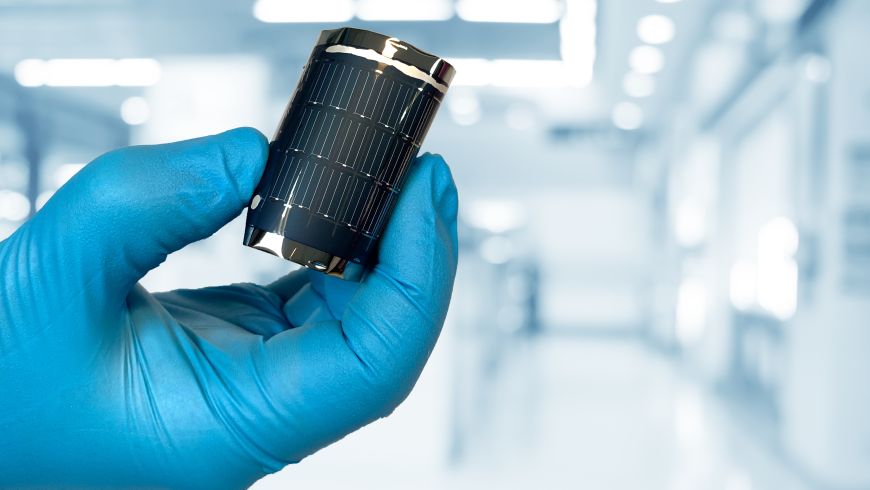Researchers from Switzerland's Federal Laboratories for Materials Science and Technology (EMPA) claim to have achieved a world record efficiency of 22.2% for a flexible copper, indium, gallium and selenium (CIGS) solar cell on polyimide plastic film.
Germany's Fraunhofer Institute for Solar Energy Systems (Fraunhofer ISE) has confirmed the results. As of September 2021, the cell had an efficiency of 21.4%.
The device was fabricated through a low-temperature co-evaporation method for the growth of the light-absorbing CIGS semiconductor thin film. EMPA scientist Shiro Nishiwaki optimized the composition of the layer and alkaline dopants to achieve improved performance.
“The current increase in efficiency is due to the alloying of the light-absorbing semiconductor layer to improve its electronic properties,” the research group said.
Popular content
The solar cell has been developed by the research team over the past 23 years. Their “record streak” started in 1999 with an efficiency of 12.8%, then went on to 14.1% (2005), 17.6% (2010), 18.7% (2011) and 20.4%( 2013) and finally reached 20.8% in 2019 and 21.4% last yer.
“The flexible and lightweight solar modules resulting from this technology are particularly suitable for applications on roofs and facades of buildings, greenhouses, transport vehicles, airships and portable electronic devices,” the head of the laboratory for thin films and photovoltaics, Ayodhya Tiwari, told pv magazine in a recent interview on the future of CIGS technology. “EMPA collaborates with the Swiss company Flisom for the manufacture of flexible and lightweight solar modules by roll-to-roll processes for such applications.”
Japan's Solar Frontier has achieved the highest efficiency for a CIGS solar cell to date, at 23.35%. German thin-film module maker Avancis has reached the highest efficiency for a solar panel, at 19.64%.
This content is protected by copyright and may not be reused. If you want to cooperate with us and would like to reuse some of our content, please contact: editors@pv-magazine.com.



3 comments
By submitting this form you agree to pv magazine using your data for the purposes of publishing your comment.
Your personal data will only be disclosed or otherwise transmitted to third parties for the purposes of spam filtering or if this is necessary for technical maintenance of the website. Any other transfer to third parties will not take place unless this is justified on the basis of applicable data protection regulations or if pv magazine is legally obliged to do so.
You may revoke this consent at any time with effect for the future, in which case your personal data will be deleted immediately. Otherwise, your data will be deleted if pv magazine has processed your request or the purpose of data storage is fulfilled.
Further information on data privacy can be found in our Data Protection Policy.